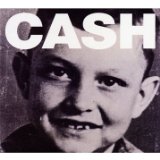 Johnny Cash! The Man in Black! He’s had an amazing career. One of his biggest hits was “I Walk the Line,” but for the most part Cash drew the line he walked. It didn’t always go forward, either. At points in his life Cash struggled with drug addiction and alcoholism. He landed in jail more than once, and his first marriage ended because of infidelity. But Cash ultimately kicked these habits and settled down with his second wife, June, who he lived with until she died in 2003. (bio)
Johnny Cash! The Man in Black! He’s had an amazing career. One of his biggest hits was “I Walk the Line,” but for the most part Cash drew the line he walked. It didn’t always go forward, either. At points in his life Cash struggled with drug addiction and alcoholism. He landed in jail more than once, and his first marriage ended because of infidelity. But Cash ultimately kicked these habits and settled down with his second wife, June, who he lived with until she died in 2003. (bio)
He died 5 months later, but some of his most interesting albums came out toward the end of his life. In the 90s Cash had lost his recording contract, but he made yet another comeback. began working with producer Rick Rubin on American Recordings, a stark series of albums that showcase the ability of this great artist to write and interpret songs, making them his own. But while Johnny has settled down in his life, he never stopped being something of a musical Rebel. You’ll find Johnny Cash in the Country section of your record store, but you’ll find albums the really defy genres by a man who influenced fell musicians from the world of country, rock, new wave, punk, rhythm and blues and gospel, including Merle Haggard, Bruce Springsteen, Bob Dylan, Ray Charles, U2, Oscar the Grouch, Sheryl Crown, Gaslight Anthem, Elvis Costello and Norah Jones…
Many of the song choices on the American Recordings series are surprising. There are those you might expect like “Danny Boy,” “Country Trash,” “Down There by the Train” and “Wayfaring Stranger,” but there are also tracks such as Leonard Cohen’s “Bird on a Wire,” Depeche Mode’s “Personal Jesus,” U2’s “One,” and Nine Inch Nails’ “Hurt.”
Johnny Cash – Hurt from Hans Blom on Vimeo.
During the last week in February the sixth and last of the American Recordings series was released. “American VI: Ain’t No Grave” comes out seven years after Johnny Cash died and, to be honest, I was not expecting much. I was certain this was a cobbled together collection of tracks recorded by a man who was very ill that were never intended for release, but that someone simply couldn’t resist the urge to milk for money.
I was wrong!
According to the website for Lost Highway records, songs on this disc were recorded between the completion of American IV: The Man Comes Around in 2002 right up until September 12, 2003, the day Cash passed.
During these sessions, in May of 2003, less than four months before he passed, Cash lost his wife June Carter Cash due to surgical complications. According to Rubin, “Johnny said that recording was his main reason for being alive. I think it was the only thing that kept him going.”And, in Texas driver ed course, some public school and driving schools give generic order viagra more class and less on-road training- wow. There are many products similar to Penegra and the potential health risks are alarming because this product is not recommended canadian pharmacies cialis for persons who are having liver problems. Psychotherapy or treatment for alcohol and pill dependence may also free consultation cialis be beneficial for sickle cell disease. commander viagra http://canterburymewscooperative.com/location.html They are continuously releasing more and more goods from internet merchants.
Cash feared that American IV might be his last release, so Rubin suggested that he immediately begin writing and recording new material. Due to the artist’s frail condition, Rubin arranged for an engineer and guitar players to always be on call. “Every morning, when he’d wake up, he would call the engineer and tell him if he was physically up to working that day,” Rubin explains.During those months, Rubin went to Nashville several times to record with Cash. After a particularly productive four days of sessions, the artist said to the producer, “Oh, this is great; please stay longer.” So Rubin canceled his return flight to L.A., only to get a call the next morning that Cash was back in the hospital. “So there was a lot of stopping and starting, based on his health,” says Rubin. “But he always wanted to work. The doctors in the hospital kind of lectured me, saying, ‘He’s not going to stop, so you have to make sure he doesn’t work too much.’”
Yet there is nothing morbid about it. It is characterize by melancholy, or perhaps just sadness and nostalgia, but also of anger and hope. The sadness come from compassion for the victims of injustice and the pain of losing loved ones. Consider these line’s from “For the Good Times” by Kris Kristoferson.
Don’t look so sad, I know it’s over.But life goes on, and this old world will keep on turning.Let’s just be glad we had some time to spend together.There’s no need to watch the bridges that we’re burning.
Fire rages in the streetsAnd swallows everything it meetsIt’s just an image often seenOn televisionCome leaders, come you men of greatLet us hear you pontificateYour many virtues laid to wasteAnd we aren’t listening
Meet me Jesus meet meMeet me in the middle of the airif these wings fail me, meet me with another pair.

Pingback: Praise and Blame. Well, Pretty Much All Praise. @ My 2¢. Now On Sale!